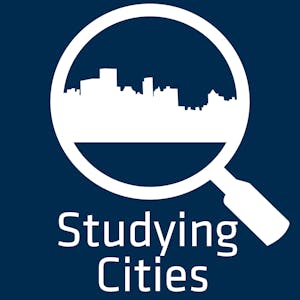Welcome to Studying Cities: Social Science Methods for Urban Research, a comprehensive course by the Institute for Housing and Urban Development Studies (IHS), Erasmus University Rotterdam. Discover the fundamental steps of the research cycle, with a focus on urban and local development. This course provides a solid foundation for future research endeavors, emphasizing the understanding and evaluation of key scientific research components.
Enhance your knowledge through video lectures, reading assignments, quizzes, and a final peer review. Whether you are pursuing a Master-level program or seeking to enhance your research skills, this course offers valuable guidance and practical tools.
Certificate Available ✔
Get Started / More Info
This course consists of modules focusing on the research cycle, theoretical framework, research strategies, data collection, and data analysis, providing comprehensive coverage of essential urban research methods.
Module 1 introduces the course with a focus on the research topic, problem statements, research objectives, the empirical cycle, and research questions. Engage in reading assignments, quizzes, and peer interactions to build a strong foundation in urban research methods.
Module 2 delves into the theoretical framework and operationalization, covering literature reviews, conceptualization, and the development of conceptual frameworks. Explore the importance of operationalization and gain insights into different understandings of conceptualization.
Module 3 explores various research strategies, including validity and reliability, surveys, experiments, case studies, and desk research. Learn to choose suitable strategies and understand the significance of different research approaches in urban and local development.
Module 4 focuses on quantitative and qualitative data collection, covering sampling, primary and secondary data collection, constructing questionnaires, and conducting interviews. Gain practical knowledge and skills in gathering essential data for urban research.
Module 5 addresses quantitative and qualitative data analysis, including data management, coding, and analysis methods. Learn to prepare and analyze both primary and secondary quantitative data, as well as qualitative data, essential for evaluating urban and local development issues.
Teaching Writing specializes in effective methods to teach writing to students of all ages and in various settings, providing adaptable theories and practices.
Educación ambiental para la biodiversidad es un curso integral que aborda la importancia de la biodiversidad en el contexto de la crisis ambiental actual. Aprenderá...
Increase student engagement and independence with Google Slides punchcards for both virtual and in-class learning.
Docencia con pedagogía activa mediada con tecnología digital is an advanced course that focuses on designing instruction using a systematic approach. It emphasizes...